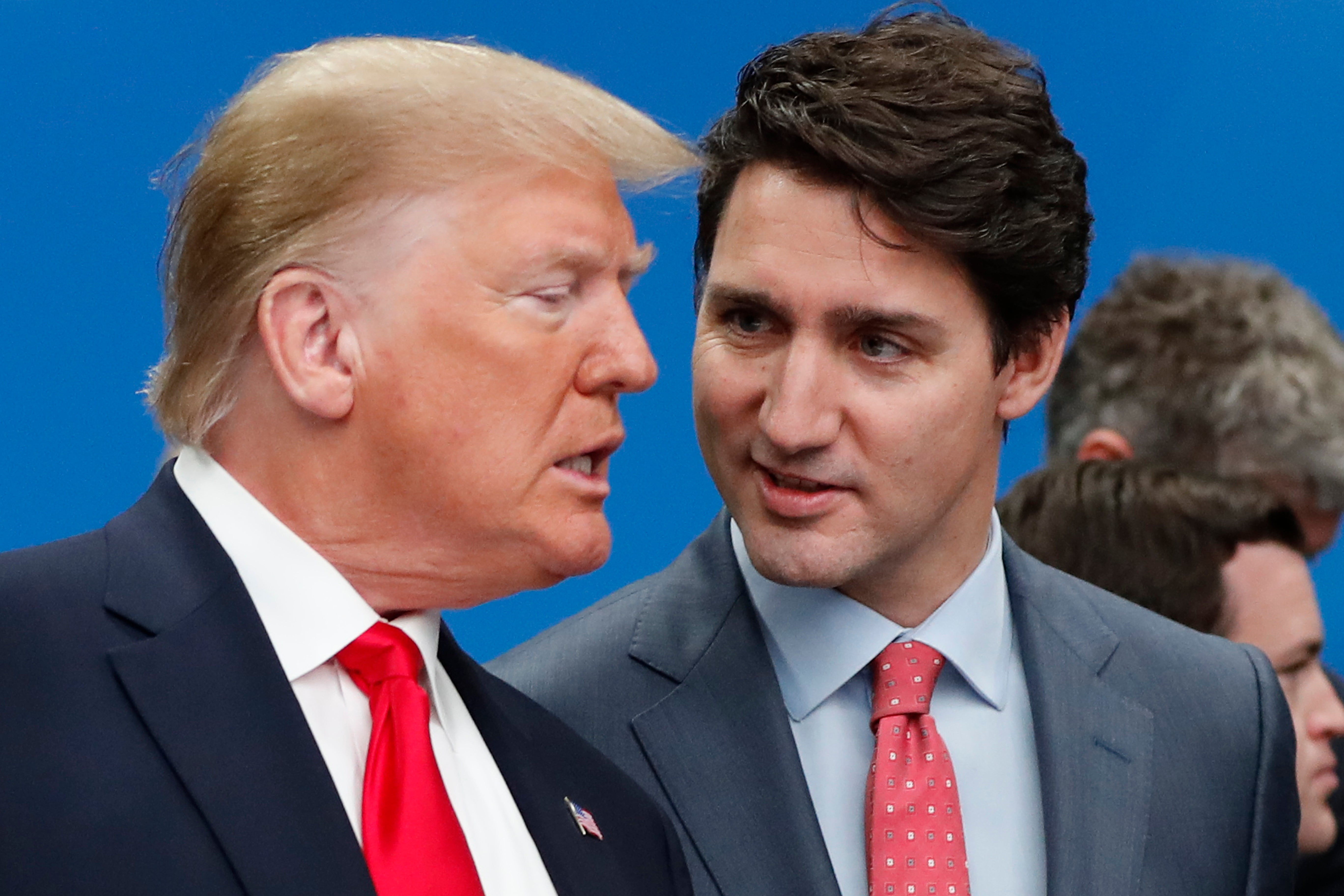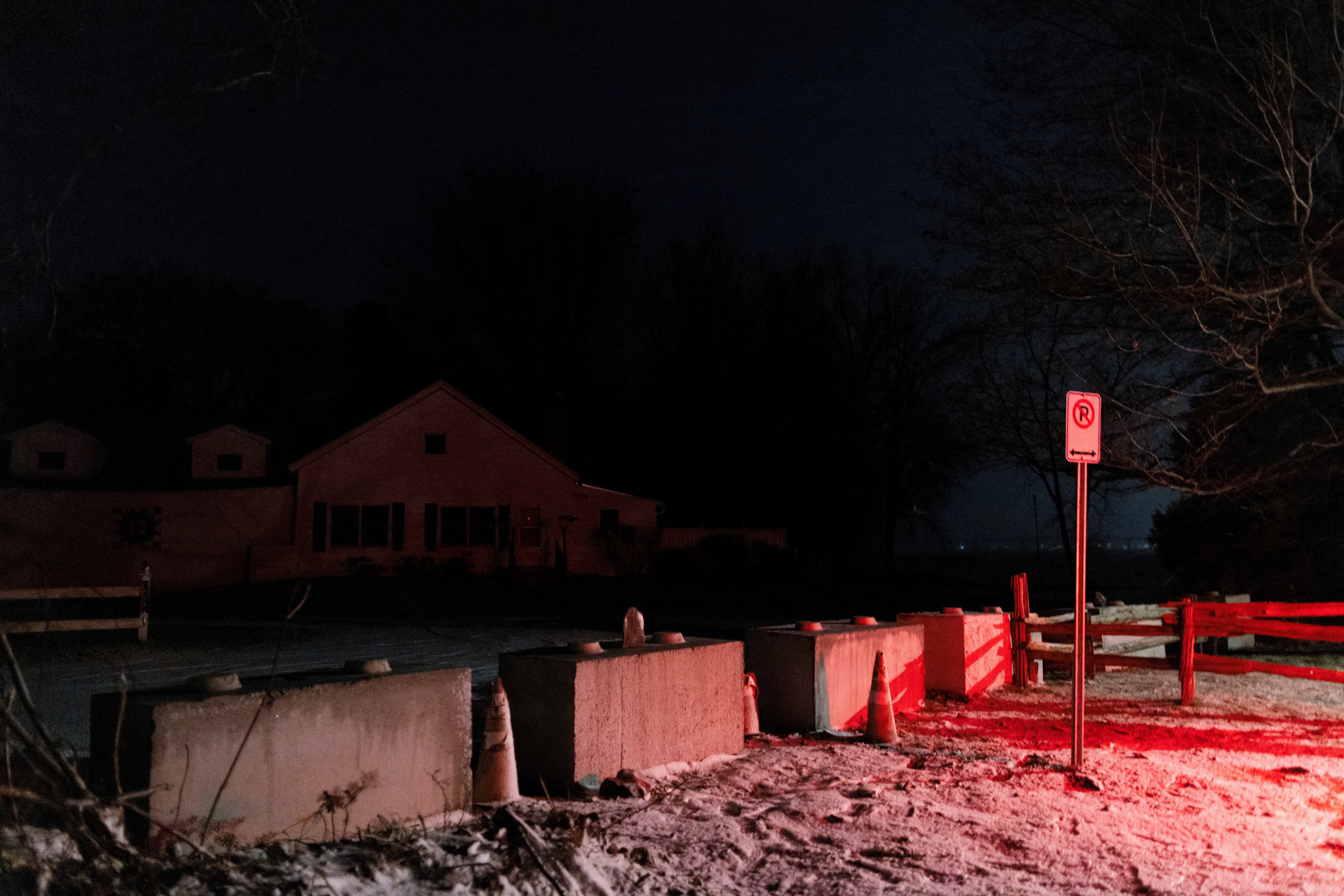Canada admits people can simply ‘hop over’ US border as Trump demands crackdown
Concrete blocks lining some parts of the world’s largest border stop vehicles from crossing, but people traveling by foot can just slip by, Canadian officials say

Your support helps us to tell the story
From reproductive rights to climate change to Big Tech, The Independent is on the ground when the story is developing. Whether it's investigating the financials of Elon Musk's pro-Trump PAC or producing our latest documentary, 'The A Word', which shines a light on the American women fighting for reproductive rights, we know how important it is to parse out the facts from the messaging.
At such a critical moment in US history, we need reporters on the ground. Your donation allows us to keep sending journalists to speak to both sides of the story.
The Independent is trusted by Americans across the entire political spectrum. And unlike many other quality news outlets, we choose not to lock Americans out of our reporting and analysis with paywalls. We believe quality journalism should be available to everyone, paid for by those who can afford it.
Your support makes all the difference.Canadian authorities admitted that migrants can simply “hop over” the U.S.-Canadian border after Donald Trump threatened hefty tariffs on the country unless it secures its boundary.
Canadian Prime Minister Justin Trudeau met with President-elect Trump at Mar-a-Lago after he threatened both Canada and Mexico with 25 percent tariffs on all imported goods unless they curb the amount of drugs and migrants from entering the U.S.
Now, members of the Canadian government’s police agency have conceded that while concrete blocks that dot some rural parts of the border prevent vehicles from crossing, it’s easy for migrants traveling by foot to step into the U.S.
“People can still hop over them,” Royal Canadian Mounted Police (RCMP) Sergeant Daniel Dubois told Reuters.
Canadian police told the outlet that they have been installing cameras and sensors over vulnerable parts of the border.

Reducing crossings along the world’s largest border is a huge undertaking. U.S. Customs and Border Patrol have nearly 200,000 encounters with migrants at the northern border this fiscal year, data shows. August was the busiest month, when Border Patrol reported almost 19,000 migrant encounters.
“Even if we were everywhere, we couldn’t stop it,” Charles Poirier, an RCMP spokesperson in Quebec, told Reuters.
“Here’s the thing: they haven’t committed an offense until they’ve crossed into the United States. So our focus for the past few months, actually the past year and a half, has been on arresting and prosecuting the smugglers,” he added.
U.S. Border Patrol reported 7,000 drug seizures in the past fiscal year at the northern border — but only 82 of them involved fentanyl — data shows. That’s compared to 8,800 drug seizures from the southern border in the same period; nearly one-tenth of those seizures involved fentanyl.

In late November, Trump threatened to impose steep tariffs on the U.S.’s neighbors on his first day in office, unless the countries tighten the flow of migrants and drugs into the United States. His particular focus is fentanyl.
“On January 20th, as one of my many first Executive Orders, I will sign all necessary documents to charge Mexico and Canada a 25% Tariff on ALL products coming into the United States, and its ridiculous Open Borders,” Trump wrote on Truth Social. “This Tariff will remain in effect until such time as Drugs, in particular Fentanyl, and all Illegal Aliens stop this Invasion of our Country!” The 78-year-old Republican has also threatened mass deportations in his second term.
Following Trudeau’s initial meeting with Trump early this month, his government is allegedly contemplating spending hundreds of millions on securing its border with the U.S., the Canadian Broadcasting Corpporation reported earlier this month.

During that meeting, sources say the president-elect mocked that Canada can circumvent the looming tariffs if it becomes America’s 51st state. Days later, Trump made a similar remark in a Truth Social post, calling the Canadian prime minister “Governor Justin Trudeau of the Great State of Canada.”
After the meeting, Trudeau warned that the tariffs would not only be “devastating for the Canadian economy,” but also for Americans.
“Trump got elected on a commitment to make life better and more affordable for Americans, and I think people south of the border are beginning to wake up to the real reality that tariffs on everything from Canada would make life a lot more expensive,” the prime minister said in a speech last week. Canada is the largest supplier of crude oil to the U.S.
Join our commenting forum
Join thought-provoking conversations, follow other Independent readers and see their replies
0Comments